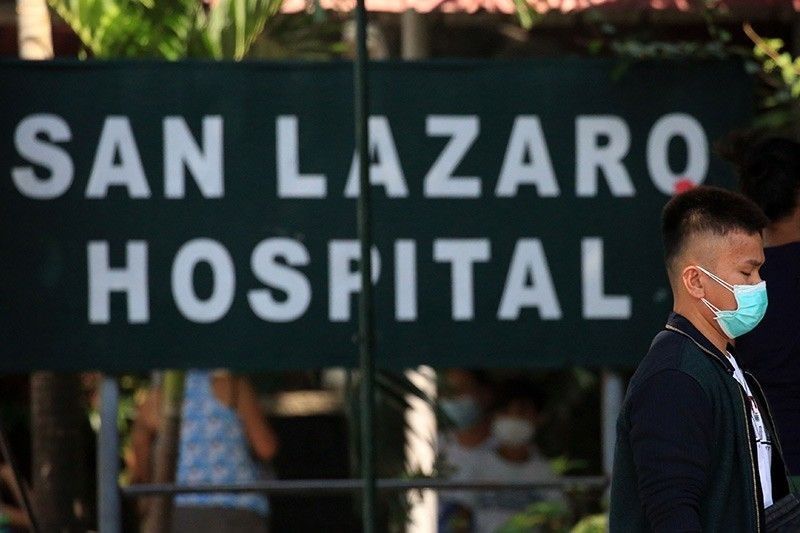DOH, WHO optimistic Philippines can keep novel coronavirus from spreading

MANILA, Philippines — Although there is no vaccine nor cure yet for the novel coronavirus (2019-nCoV), representatives of the Department of Health and the World Health Organization said they are optimistic that the Philippines can containthe spread of the virus.
At Monday afternoon's Senate hearing on the government's response to and prepardness for the new virus, Senators Nancy Binay, Risa Hontiveros and Joel Villanueva questioned whether or not the country is equipped and prepared to deal with a possible outbreak scenario.
Villanueva raised concerns over the country's limited resources, which he said could hinder initiatives against the virus as the number of patients under observation has risen to 80.
In response to these questions, Health Secretary Francisco Duque III said, "the Philippine government is capable indeed of addressing the 2019-nCoV situation. This is not the first time, your honors. We have been besieged by the similar coronavirus of 2002 and 2003 and 2014-15."
Coronaviruses are a large family of viruses that range from the common cold to more serious infections.
"We've done this before but it is very important that we should be able to heighten all the intervention needed to mount an effective response to these emerging infectious disease," Duque added.
READ: Quick questions — and answers — on the novel coronavirus
WHO rep: Philippines has been proactive vs outbreaks
For his part, Rabindra Abeyasinghe, acting WHO representative in the Philippines, said: "We still believe that this outbreak can be controlled like the previous two coronavirus outbreaks of SARS and MERS-CoV."
Abeyasinghe also disclosed that "the Philippines has been one of the proactive members in the last few years" in implementing measures to combat outbreaks.
Below are the "directives" that Executive Secretary Salvador Medialdea said were forwarded by President Rodrigo Duterte at the recommendation of the Inter-Agency Task Force for the Management of Emerging and Re-Emerging Infectious Diseases:
- Temporary ban on any person besides Filipinos coming from Hubei and other places coming from Hubei Province and mainland China
- Temporary ban on anyone, including Filipinos, who has been to officially-confirmed affected areas within 14 days of coming to the Philippines
- Establishment of a repatriation facility, "somewhere in the North" that is "still being studied and considered at this point"
WATCH: 'Everything is well': Duterte assures nation on novel coronavirus risk
Challenges
Despite the department's reassurances, though, Duque admitted that there is no vaccine or special treatment yet for nCoV besides supportive care.
Villanueva said he also has issues with the travel ban, saying, "for example, transmission from asymptomatic persons is a reasonable possibility [and the] response from the Philippine government should be rechecked and recalibrated, especially since border checkpoints may be rendered useless if the infected persons are asymptomatic."
Asymptomatic means not having any symptoms of 2019-nCoV Acute Respiratory Disease.
"Questions like are we ready if we repatriate? How are we preparing for that? What if a Filipino has it?" he added.
A complex at Fort Magsaysay in Nueva Ecija that was originally meant to be a "mega-rehabilitation center" is among the potential quarantine sites for 2019-nCoV cases.
'Countries need to be more prepared'
Although they did express optimism at the country's hold over the outbreak, both Duque and Abeyasinghe called for further preparedness capacities amid the scare.
"We [still] need to increase the preparedness and response capacities across all member states so that they are prepared to deal with possible importations and the possible emergence of local transmission," the latter said.
Duque said this was because of the unpredictaility of the 2019 nCoV. "This particular virus can be notorious for its ability to mutate. To what extent, nobody knows for sure. We have to be extra careful and we ought to be ready at all times," he said.
According to Abeyasinghe, WHO has been working with member states using the Asia-Pacific Strategy for Emerging Diseases (APSED), a strategic framework developed in 2005 to systematically respond to public health emergencies in the region.
READ: Philippines nCoV patients jump to 80
As of this writing, China's National Health Commission has confirmed that infections in the 2019-nCoV outbreak have passed 20,400 nationwide with 3,235 cases confirmed. Closer to home, the number of PUIs jumped significantly to 80 people as of Monday, from less than half at 36 people on Sunday. — with reports from Patricia Lourdes Viray and The STAR/Sheila Crisostomo
- Latest
- Trending





























